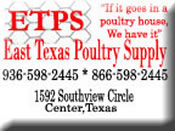July 24, 2015 - The Shelby County Extension Office hosted another beekeepers meeting on July 16. This meetings subject was summer beehive management.
This insect that we depend upon for a third of our food has a number of natural problems even before human neglect can run its course. In fact, beekeepers spend a good amount of time treating for the problems both in and outside the hive.
Honeybees have their own diseases, insects, mites, and four-legged problems. While is sounds counter-intuitive, beekeepers do indeed use “pesticides” to keep some of these “pests” from harming the honeybee.
The Varroa mite is considered by many to be the most serious malady of honey bees. It now occurs nearly worldwide. This external parasite feeds on the blood of adult bees, larvae and pupae. In addition this blood sucking parasite is responsible for spreading some diseases.
The small hive beetle, North America's newest beekeeping pest, was first discovered in Florida in the spring of 1998. Small hive beetle larvae consume pollen and comb but also will eat larval honey bees. After completing the larval stage, they crawl out of the hive and pupate in the soil. Adult beetles will feed on honey bee eggs.
Adult female wax moths fly at night and deposit masses of eggs on unprotected beeswax combs and in the cracks between hive bodies. After a few days these eggs hatch into caterpillars or larvae. The larvae crawl onto the comb and begin their feeding activity in protected areas, often near the center midrib of the cells.
Mice are a serious pest of stored combs and active honey bee colonies during the fall and winter months. These rodents chew combs and frames to make room for building their nests. Mouse urine on combs and frames and bees are reluctant to use the combs or clean out these nests in the spring.
Also, nosema disease, an adult disease caused by a protozoan, weakens the digestive track of infected bees and may allow pathogens to enter the honey bee's gut where they can cause significant damage.
In some areas, skunks are a serious threat to successful beekeeping, since they hamper the development of strong colonies. Being insectivorous (insect-eating), skunks will raid bee yards nightly, consuming large numbers of bees. To capture bees, skunks scratch at the hive entrance and guard bees that come out to investigate the disturbance. A successful skunk will repeat the process several times and may feed at the hive entrance for an hour or more to rapidly depleting the bee population. Colonies visited by skunks may become defensive since skunks usually return night after night.








